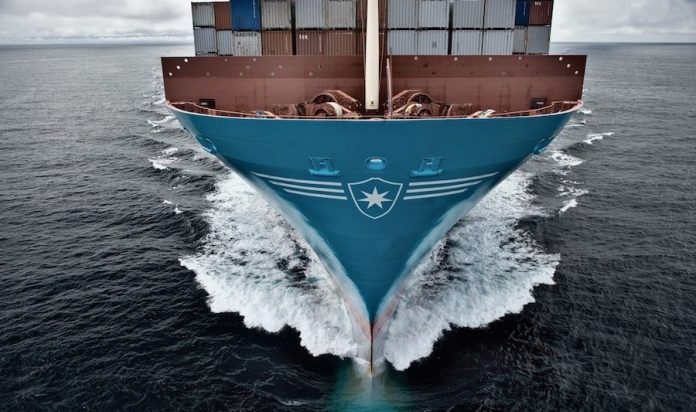A.P. Moller – Maersk will introduce the first in a series of eight large ocean-going container vessels capable of being operated on carbon neutral methanol in the first quarter of 2024.
The vessels will be built by the South Korean shipbuilding company Hyundai Heavy Industries (HHI) and have a nominal capacity of approximately 16,000TEU.
The series will replace older vessels, generating annual CO2 emissions savings of around 1 million tonnes, while the agreement with HHI includes an option for four additional vessels in 2025.
The new vessels come as part of the company’s ongoing fleet renewal program and will replace tonnage of more than 150,000TEU which is reaching end-of-life and leaving the Maersk-managed fleet between 2020 and 2024 first quarter.
The vessels come with a dual fuel engine setup. Additional capital expenditure (CAPEX) for the dual fuel capability, which enables operation on methanol as well as conventional low Sulphur fuel, will be in the range of 10-15% of the total price.
“This order proves that carbon neutral solutions are available today across container vessel segments and that Maersk stands committed to the growing number of our customers who look to decarbonise their supply chains. Further, this is a firm signal to fuel producers that sizable market demand for the green fuels of the future is emerging at speed,” commented Soren Skou, CEO of A.P. Moller – Maersk.
Maersk will need partnerships and collaborations for the production of carbon neutral methanol, according to a statement.
The vessels will feature a methanol propulsion configuration developed in collaboration with makers including MAN ES, Hyundai (Himsen) and Alfa Laval which represents a significant scale-up of the technology from the previous size limit of around 2,000TEU.
Additionally, the vessels will be classed by the American Bureau of Shipping and sail under the Danish flag.
CAPEX for the announced vessels is included in current guidance for 2021-2022 of US$7 billion, while Maersk further reiterates its strategy of maintaining a fleet capacity in the 4 – 4.3 million TEU range, as a combination of Maersk managed and time-chartered vessels.







